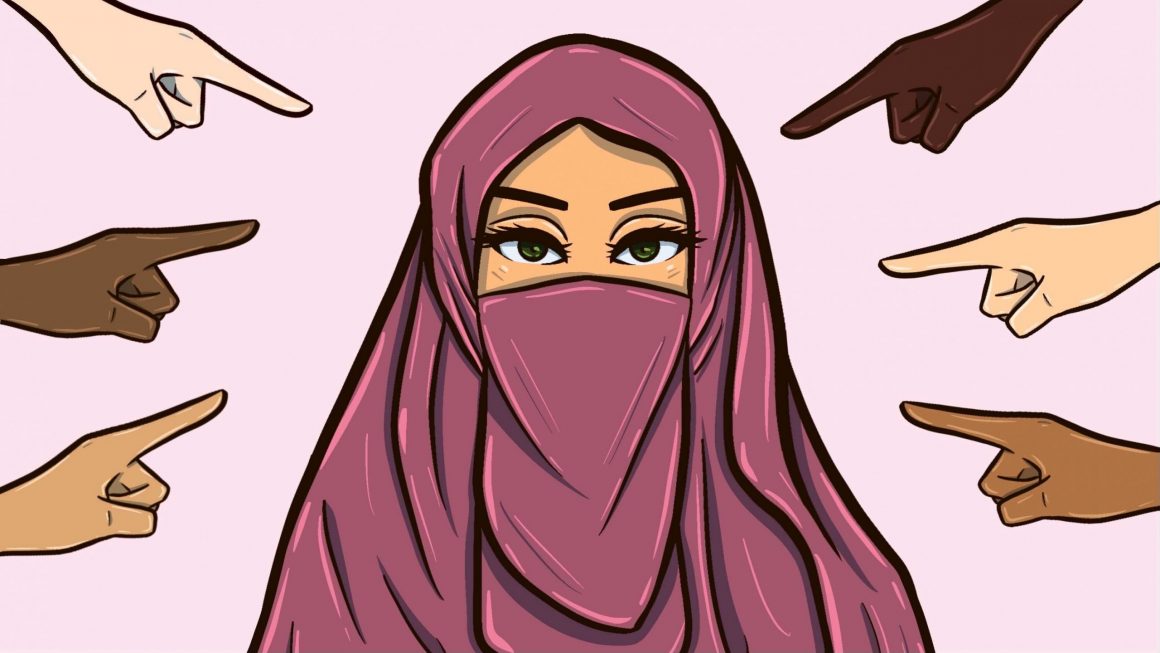
Gender apartheid in Afghanistan: Taliban silences women
By Reyam Jamaleddine, October 3 2024—
In 2021, the Taliban executed an insurgency on the U.S.-backed government that had been in power in Kabul since 2001. The U.S. and British forces abruptly abandoned the country and since then, Afghanistan has grappled with a plummeting economy, accelerating malnourishment and a significant increase in human rights violations against women and girls.
Women and girls have been barred from free movement, education and work under Taliban rule. Most recently, the Taliban passed a new set of laws that they coin as, “virtue and vice” laws. These laws include the prohibition of women speaking in public. According to an article in The Guardian, the new law states, “Whenever an adult woman leaves her home out of necessity, she is obliged to conceal her voice, face and body.”
A Taliban spokesman told the BBC that these laws are in accordance with Islamic Sharia Law. The exploitation of indefinite religious scripture falls to be a burden on the shoulders of the people of Afghanistan.
Feminist writer Mona Eltahway in her book, The Seven Necessary Sins for Women and Girls writes that, “We must recognize that the ubiquitous ways patriarchy has socialized women to shrink themselves — physically and intellectually — extends also into language, into what we can and cannot say. It is not just a fight for airtime. It is not just policing of women’s egos. It polices women’s very language.”
The policing of women and their language is a familiar experience for most women. However, the outright abolishment of speech for women is a phenomenon that is beyond inhumane — it’s implications are unfathomable.
In the plight for the ownership of women, it seems that it is far easier a task to simply ban speaking altogether rather than policing the tone and vocabulary that women use through rigid sets of laws. What was initially thought to be an outrageous crime against humanity is now an outright question of whether or not Afghan women are considered to be human beings under Taliban rule.
The United Nations special rapporteur has proposed that this extreme brutality against women be classified as a “gender apartheid”. An apartheid is the implementation and maintenance of a regime that withholds and deprives the civil and political rights of a specific racialized group. The concept of gender apartheid was initially introduced in the ‘90s by Afghan human rights activists and feminist allies in retaliation to the oppressive Taliban regime. Since then, women in Afghanistan are systemically deprived of any existing civil and political rights and alarmingly so. The formal negotiations regarding the recognition of gender apartheid under international law will be addressed in October 2024.
Being aware, raising awareness gender apartheid proposals is one of the main ways in which we can contribute to the hopeful gender revolution in Afghanistan. We are not the saviours who will liberalize the women of Afghanistan, but we can be the ones to assist and support the plight of freedom that can only be achieved by the tenacious and brave Afghan women. Instead of furthering the isolation that Afghan women currently face, we can all contribute by using our voices to ensure that Afghan women are not forgotten and never will be.
This article is a part of our Voices section and does not necessarily reflect the views of the Gauntlet editorial board.
